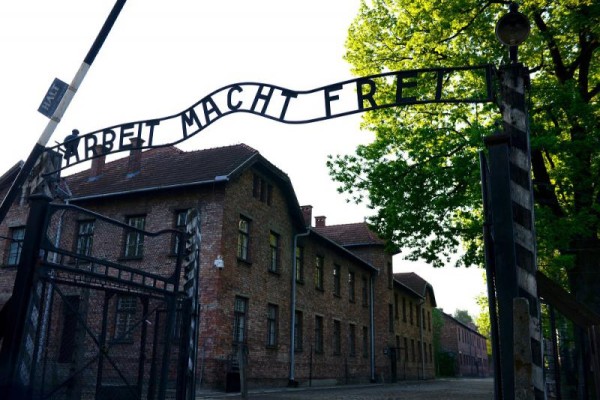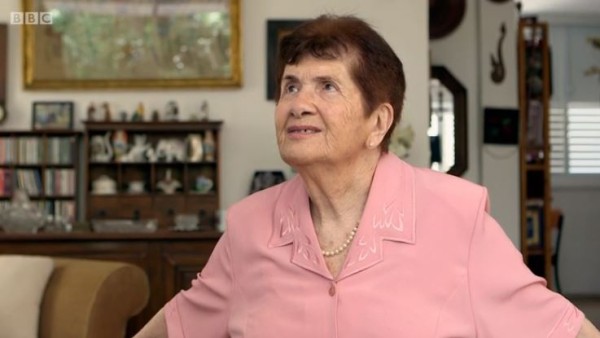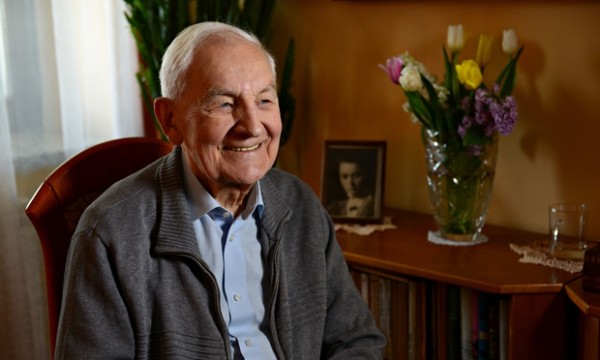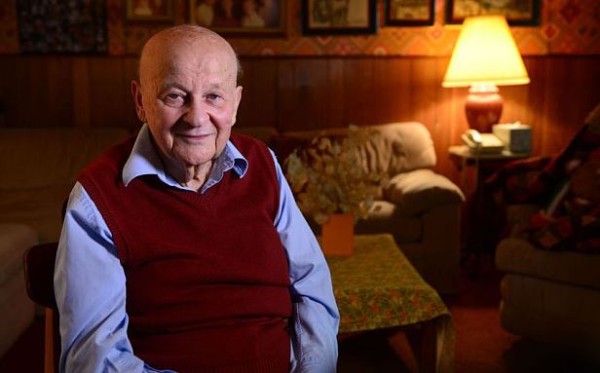
How did Holocaust survivors manage to cope after their horrific ordeal in Auschwitz? Could they lead productive lives ever again? Could they shake off their traumas? Could they function as normal human beings?
Touched by Auschwitz, an empathetic BBC documentary written and directed by Laurence Rees and scheduled to be broadcast by Vision TV in Toronto on April 14 at 9 p.m. and 10 p.m., examines these issues through the postwar experiences of six Jewish and non-Jewish prisoners of this Nazi concentration camp in southern Poland.
Halina, a Polish Jew who was deported from the Warsaw ghetto, arrived in Tel Aviv in 1947, about a year before the creation of the state of Israel. She lived on a kibbutz and there she met her husband.

The kibbutzniks didn’t want to listen to her stories, nor did they respect her. Having failed to grasp the unprecedented magnitude of Hitler’s Final Solution, they couldn’t understand why she and other European Jews had not fought back.
Halina gave birth to a son, but found parenting difficult. And she missed her mother, who had been murdered in Auschwitz. Halina inundated her son, Yakov, with tales about the Holocaust. He listened dutifully, but, like some of the children of survivors, he lost his childhood in the process. The net result? Forty years of therapy.
Giselle, a psychologist in Jerusalem, works with Holocaust survivors who are still emotionally scarred by it. A level-headed woman, she understands them as few people can because she’s a survivor herself, having been sent to Auschwitz from Hungary.
German, a Sinti from Germany, found himself in Auschwitz at the tender age of nine. Nineteen thousand Sintis perished in Auschwitz, but he was one of the lucky few who survived. Before he was reunited with his family, a French family in Paris took care of him. Their decency touched him, but he could not deal with his demons. Admitted to a mental hospital, he was subjected to electric shock therapy.
Returning to Germany, he married a German woman from Bavaria. They had three children, and he and his wife bought and sold antiques. To this day, German is plagued by nightmares and bouts of super nervousness.
At 80, he can hardly believe he’s alive.
Tadeusz, a Polish Catholic incarcerated in Auschwitz as a political prisoner, has faith in the power of kindness. He knows he would have perished had he not been helped by other inmates.

One of his most vivid memories strikes at the soul. From the window of a building, he heard an inmate singing an aria from Tosca. He was later killed. The memory haunts Tadeusz.
After the war, Tadeusz studied medicine, hoping he could use his skills to help others. By chance, he and his wife ended up in a town near Auschwitz. He rarely spoke about Auschwitz in the company of his children and grandchildren, not wishing to burden them. He’s still kept awake at night by nightmares.
Freda was transported to Auschwitz from France. In 1948, she immigrated to Britain. She married a wealthy man, and they lived in a grand house. He died, leaving no will. She and her three daughters had to downsize.
The Holocaust still gnaws at her, but she has made it her business to combat hatred and prejudice.
Max, a retired professor of electrical engineering in the United States, has lived a happy life, not having allowed anger to embitter him. A Polish Jew, he and his mother were transported to Auschwitz in 1944. Working in a nearby sub-camp, he was surprised by the compassionate treatment he received from a German soldier stationed there.
He and his mother went to Palestine following the war. After joining a kibbutz, he fought in the 1948 Arab-Israeli war. In 1953, he and his mom moved to Chicago.

Sparing his children the details of his incarceration in Auschwitz, Max tried to erase the Holocaust from his mind. To a great extent, he succeeded. But after neo-Nazis staged a provocative rally in a heavily-Jewish Chicago suburb, Max broke his silence and delivered speeches on the Holocaust.
He comes across as a well-adjusted, resilient person — a man who left the horrors of Auschwitz behind him. But as Touched by Auschwitz suggests, some survivors are still coping with the emotional fallout.